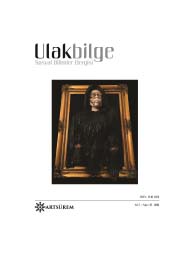KAMPIN BİYOPOLİTİKASI: YEVGENİYA GİNZBURG VE VARLAM ŞALAMOV’UN GULAG TANIKLIĞINDA BEDEN
Biopolitics of Camp: The Body in Eugenia Ginzburg’s and Varlam Shalamov’s Gulag Testimonies
Author(s): Duygu ÖzakınSubject(s): Ethics / Practical Philosophy, Structuralism and Post-Structuralism, Studies in violence and power, Victimology, Politics of History/Memory
Published by: Sanat ve Dil Araştırmaları Enstitüsü
Keywords: Zoē and bios; politics of the body; inhuman condition (conditio inhumana); Ginzburg; Shalamov;
Summary/Abstract: The objective of this study is to present intersections between biopolitics that intends to benefit from biological potential and capabilities of the individual in favor of the state by keeping population under surveillance and politics of death (thanatopolitics) in Soviet corrective labor camps. It discusses the process from constructing persona-grata to destructing persona-non-grata as “enemies of the people” through contemporary Italian philosopher Georgio Agamben’s conceptualisations “bare life” and “state of exception”; and contemporary French historian Annette Becker’s “animalization” and “reification”. The relevant concepts are evaluated within the testimonies of Gulag survivors -Yevgeniya Ginzburg's “Journey into the Whirlwind” and Varlam Shalamov's “Kolyma Stories”. It has been concluded that the phenomenon of camp was not left behind as an anomaly of the past; it has correspondence in theory and practice as the matris and the nomos of current political life as Agamben prescribed.
Journal: Ulakbilge Sosyal Bilimler Dergisi
- Issue Year: 7/2019
- Issue No: 35
- Page Range: 301-315
- Page Count: 15
- Language: Turkish

